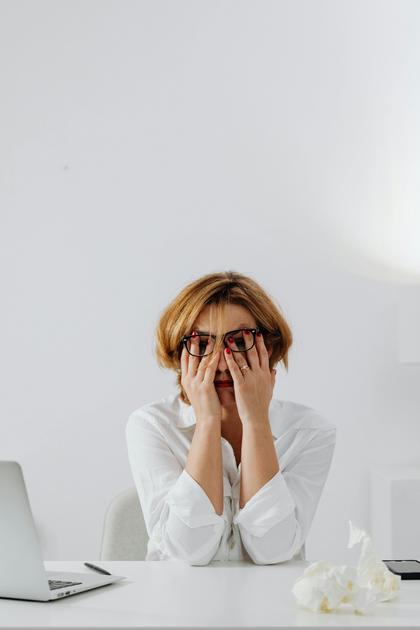Women: Overcoming Anxiety & Burnout Challenges
Explore the nuances of managing anxiety and burnout with our latest insights from the video “Women: Overcoming Anxiety & Burnout Challenges.” Join us as we delve into practical solutions and expert advice to empower women in overcoming mental health challenges.
Understanding Anxiety and Burnout
Anxiety and burnout affect women uniquely, manifesting through various symptoms such as chronic fatigue, irritability, and feelings of overwhelm. These conditions can arise from multiple stressors, including career pressures, familial responsibilities, and societal expectations. Recognizing the signs is the first step in addressing these issues.
According to recent studies, women are more prone to anxiety-related disorders compared to men. The intricate balance of personal and professional demands often leads to heightened stress levels. Organizations like Anxiety & Depression Association of America (ADAA) provide valuable resources tailored to managing anxiety among women.
Effective Strategies to Combat Anxiety
Implementing daily meditation practices can significantly reduce anxiety indicators. Techniques such as mindfulness and deep-breathing exercises calm the mind and promote a sense of inner peace. Moreover, regular physical activity is vital; it not only boosts mood but also enhances mental clarity.
Another effective strategy involves maintaining a balanced diet rich in omega-3 fatty acids and magnesium, which are known to mitigate symptoms of anxiety. Integrating these nutritional elements can improve overall mental health. Combining these practices with professional guidance, like therapy, ensures a comprehensive approach to well-being.
Leveraging Support Networks
Building a reliable support network is essential for women navigating anxiety and burnout. Sharing experiences with trusted friends or family can provide emotional relief and foster understanding. Support groups, particularly those focused on mental health, offer a communal space to share and learn.
Online platforms such as forums and dedicated apps also play a crucial role in connecting individuals. These digital communities offer convenient access to advice and emotional support anytime. Participating in these networks empowers women, providing them with tools to handle stress effectively.
The Role of Professional Help
Consulting a mental health professional is pivotal for specialized guidance. Therapists and counselors are trained to help women identify triggers and develop coping mechanisms tailored to their unique situations. This personalized approach ensures effective management of anxiety and burnout challenges.
In severe cases, medication may be prescribed to manage symptoms; however, this is generally accompanied by therapeutic interventions for optimal outcomes. It is essential to seek professional help early to prevent escalation and maintain mental health stability.
Innovative Solutions and Tools
Recent advancements in technology have introduced various apps designed to assist with mental health management. Applications like Calm and Headspace offer guided meditations and relaxation techniques tailored for anxiety reduction. Utilizing these tools can provide immediate relief and long-term benefits.
Furthermore, wearable technology, such as fitness trackers, can monitor physiological changes and alert users to potential anxiety triggers. These devices help in building awareness and fostering proactive approaches to managing mental health.
Maintaining a Balanced Lifestyle
Incorporating a balanced lifestyle is crucial for sustaining mental health improvements. Practices such as setting realistic goals, managing time effectively, and prioritizing self-care rituals contribute to a holistic approach towards anxiety reduction.
Regular sleep patterns and work-life balance are key components of maintaining mental well-being. Adjusting one’s environment to mitigate physical and emotional stressors facilitates a smooth recovery path. Women should strive for consistency in these habits to ensure lasting health benefits.
FAQ
How can I tell if I’m experiencing burnout or anxiety?
Burnout typically manifests as chronic exhaustion, detachment from work, and reduced professional efficacy, whereas anxiety often involves persistent worry, restlessness, and irritability. Consulting with a healthcare professional can provide a clear diagnosis and appropriate treatment plan.
What are some daily activities that can help reduce anxiety?
Regular exercise, such as yoga or a brisk walk, can significantly alleviate stress. Mindfulness practices and journaling are also beneficial. These activities promote relaxation and offer a distraction from worry, helping to manage anxiety over time.
Are there specific foods that help with anxiety?
Yes, foods rich in omega-3 fatty acids, such as salmon and flaxseeds, as well as magnesium-rich options like spinach and almonds, have been shown to combat anxiety. Maintaining a diet that includes these nutrients helps support brain function and reduce stress.
When should I seek professional help for anxiety?
If anxiety begins to interfere with daily life, such as impacting work performance or personal relationships, it’s advisable to consult a mental health professional. Early intervention can prevent the worsening of symptoms and aid in recovery.
How do support groups benefit women with anxiety?
Support groups provide a sense of community and understanding, offering a platform to share experiences and coping strategies. Such environments help reduce feelings of isolation and empower women to tackle their mental health issues confidently.
Watch the Video:














